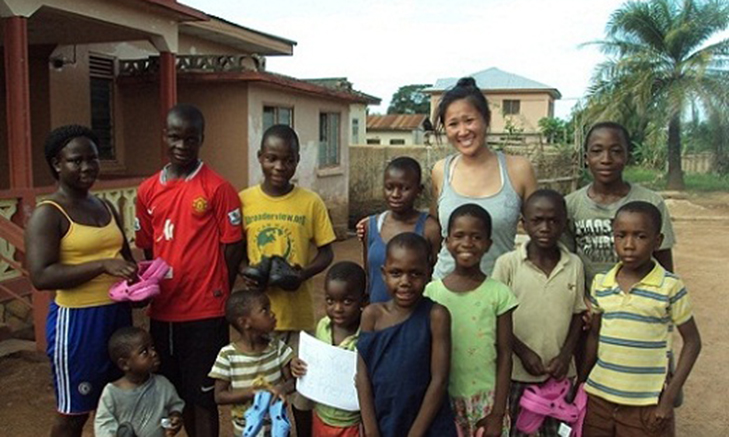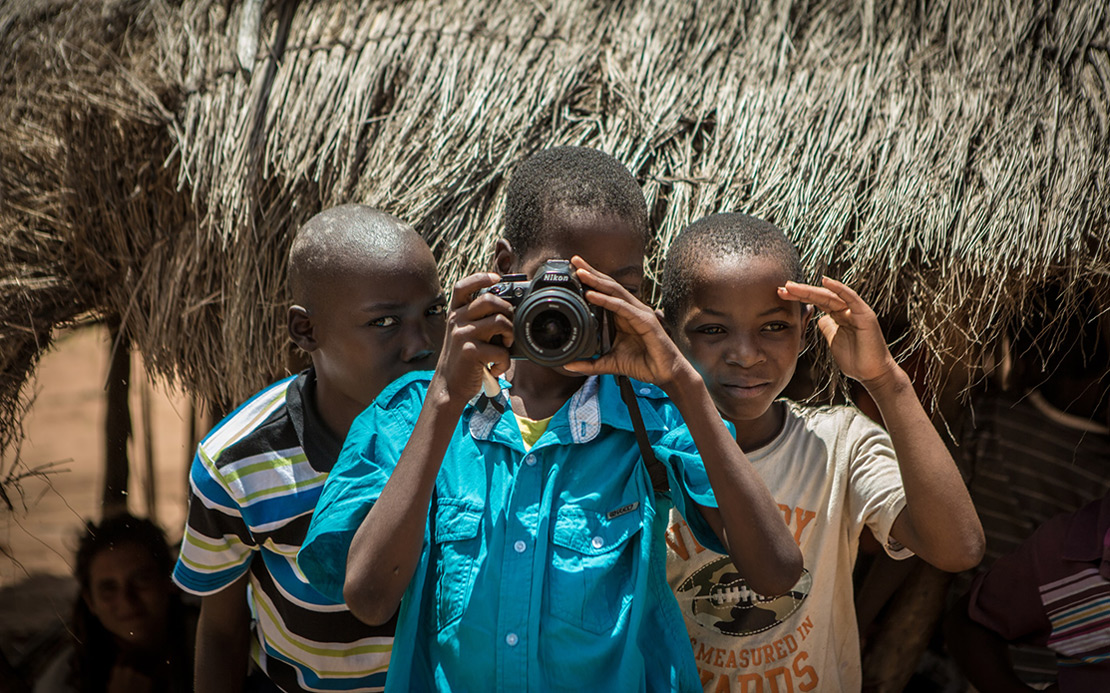Volunteering in Africa is one of the most rewarding, exciting experiences that a volunteer can have. Africa itself is one of the most diverse places on our planet, with everything from deserts to ancient cities to immense and uncharted tropical jungles. As Africa is so vast and varied, it may be hard for you to zero in on exactly where you want to go and what you want to do. With so many choices, this is a struggle that many volunteers experience after deciding to travel to Africa. We hope this guide will do two things- give you a basic level of information about volunteering in Africa and excite you with the knowledge that you are about to serve in a way that is rewarding without bounds for both you and your host community.

Volunteering in Africa: Everything You Need to Know Before You Go
There are many ways in which Africa is a unique volunteer abroad environment and sadly, it is often overlooked by volunteers deciding to travel to more popular volunteer abroad destinations. Because of misconceptions about Africa’s general level of economic development and the long-lasting and harmful vestiges of colonial expansion, many travelers have skewed ideas about the reality of modern-day Africa. The first thing you must know is that there is no one Africa- but thousands of communities that sometimes share only the same continent. When considering this, we urge you to take a look into the wide scope of diversity that is Africa and find a special community where your hands – and your heart – are needed the most.
Although the traditional depiction of Africa is that of a small, grass-lands village, you should know that much of Africa is equally or more developed than other parts of the world. Culturally, Africa is just as vast and differentiated as its landmass. Going across the continent, you would be able to find everything from globally-oriented cities to small villages that are, simply, unparalleled anywhere across the globe. Still, due to widespread food shortages, frequent droughts, and economic mismanagement, many people in Africa must subsist at extreme levels of poverty that affect not just the physical health of the people, but the health of their communities. Although volunteers are needed all around the world, Africa’s special need for them could be expressed in the fact that the Peace Corps, one of the oldest and best-established volunteer abroad programs, sends 46% of its own volunteers to placements in Africa.
Types of Volunteering
Because of Africa’s diverse climate and cultures, almost any type of volunteering abroad program can be found. If you’re interested in volunteer with animals, there are many programs that help with rehabilitation and habitat conservation of many different species including the large mammals of the savannas and the great primates of the African jungles. There is also a large need for education-based volunteers, which can assist not only in traditional schools but with programs that focus on teaching Africa’s disproportionately teenage population life skills that help them obtain much-needed jobs. Additionally, there are many volunteer abroad organizations that have projects invested in community building, which is of vital importance in impoverished African towns and villages that have very limited resources. Volunteering in any of these areas, and others is a great way to address one of the many issues affecting African communities across the continent.
At Volunteer Forever, we pride ourselves on being able to show honest and accurate reviews of volunteer abroad programs written by the people who know- the volunteers themselves. Because of this, we are able to have well-founded recommendations that come from volunteers just like you. The programs listed as examples at the end of the area summaries are ones that have been vouched for by our volunteers. If you want to read more reviews about programs based in Africa, this is a good place to start.
African Volunteer Abroad Programs
From Morocco to Cape Town, the continent Africa encompass some of the most brilliant and varying cultures of our planet. Aside from national borders, Africa is generally divided into five different geopolitical areas, North Africa, West Africa, Central Africa, East Africa, and Southern Africa. These divisions can be a bit confusing and often aren’t clearly delineated.
North Africa: North Africa is usually described as the countries bordering the Mediterranean Sea. Of the major African regions, North Africa is most closely related to the Middle East and Europe, as trade and a shared religion have facilitated relationships among the regions for hundreds of years. This can still be seen today in many aspects of North African culture. The local cultures of North Africa have been traditionally influenced by the region’s dominant environmental structures- the Sahara Desert and the Nile River. However, because many North African countries are rich in oil, this has changed with time.
If you choose North Africa as your volunteer abroad destination, our volunteers recommend looking into Projects Abroad, which operates education-based volunteer projects in Morocco.
West Africa: West Africa refers to about sixteen countries in the westernmost area of Africa that borders the Atlantic Ocean to the west and the Sahara Desert to the north. Like North Africa, West Africans are predominantly Muslim, although there are small populations of people of other religions. In many ways, the culture of West Africa is much different from Africa as a whole, as West Africans are not descended from the original Bantu peoples that populate much of eastern, central, and southern Africa. West Africa is especially noted for its vibrant cuisine and folk music.
If you’re interested in volunteering in West Africa, our volunteers recommend checking out Developing World Connection‘s Sierra Leone based project, We Yone Child Foundation, which focuses on educating and improving the lives of children living in slum communities in Central Freetown.
Central Africa: Central Africa refers to the core of the African continent stretching from Chad to Angola and comprising of about fourteen different countries. Although Central Africans are generally descended from the Bantu peoples, there are many distinct ethnic groups with unique cultures. Most of the traditional economy of Central Africa is based on herding and fishing around the Lake Chad basin, although this is proving problematic with frequent droughts and industrialization. Unfortunately, around 40% of the rural population lives in poverty due to frequent crop shortages. Such high levels of poverty create a strong need for volunteer assistance in many fields such as healthcare, community building, and agriculture.
If you’re interested in volunteering abroad in Central Africa, try researching A Broader View Volunteers, which operates healthcare and education-based volunteer programs in Cameroon.
East Africa: East Africa is usually described as the countries bordering or near the Indian Ocean and stretching from what is commonly referred to as the Horn of Africa down the coast to Mozambique. East Africa is especially well-known for its unique environment and diversity of animal species, including the infamous lions and black rhinoceroses. This region of Africa is at a much higher elevation than many other parts of Africa, and as a result, is much cooler and dryer. East African culture is strongly influenced by trading along the Indian Ocean and the area known as the Horn of Africa is especially known for being historically significant in the rise of many world civilizations.
While there are plenty of opportunities to volunteer abroad in East Africa, our volunteers speak very highly of African Impact, which has programs in many countries including conservation and community building projects in Madagascar. We also can strongly recommend International Service Learning, which facilitates health and conservation-related volunteer programs in Tanzania.
Southern Africa: Southern Africa is loosely defined as the countries along Africa’s southern tip. The area is strongly influenced by the major economic powerhouse in the area, the nation of South Africa. Despite South Africa’s increasing industrialization, it is home to some of the most singular wildlife habitats in the world, especially for the big game species of the savannas. The overall community health of Southern Africa is hurt most directly by the HIV/AIDS epidemic and poverty. Because of habitat loss, there is also a strong need for conservation volunteers.
If you are interested in volunteering in Southern Africa, we would recommend Volunteer Eco Students Abroad, which has an education and conservation-based program in the St. Lucia area of South Africa. Our volunteers also highly recommend International Student Volunteers, which coordinates wildlife conservation and community development projects in South Africa.
Summing It Up
Volunteering in Africa is a chance of a lifetime, not just for you, but for the community that you will be interacting with. As you have seen, the programs we spotlight range from educating children in slums to working to rehabilitate endangered animals. Programs like these provide opportunities for volunteers to use their unique skills to better the world around them. Like all volunteer programs, volunteer programs in Africa rely heavily on volunteers, and would not be able to continue the good work that they do without a steady stream of hard-working, informed volunteers.
So, consider Africa, and all the good that can become of your volunteer abroad experience.
If you’re wondering how you can afford a volunteer trip to Africa, check out our list of 200 Volunteer and Study Abroad Scholarships and Grants or learn how you can volunteer abroad for free.


Brittany Edwardes · Guest Volunteer Travel Writer
Brittany Edwardes is a Fulbright Scholar who spent a year teaching and living in Southeast Asia. Brittany is very passionate about service learning, spending time outdoors, and making her own pasta.